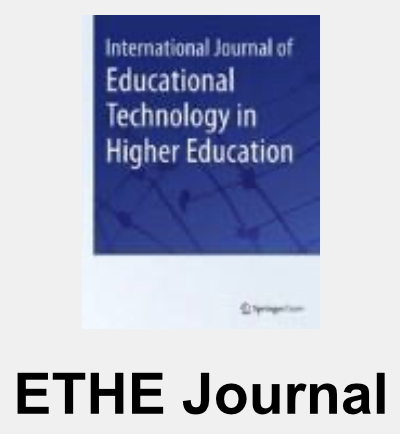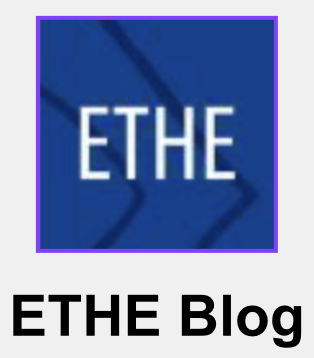After the webinar cycle “Docencia no presencial de emergencia”: Reflections on dialogue between university and society in times of crisis
With the publication of the “Decalogue for unexpected online teaching” on March 16, our research group, Edul@b, activated a strategy to contribute from their experience to the needs of educational institutions resulting from the impact of COVID-19. In fact, this proposal was arised from an internal communication channel of the group that saw how the tension and the need for responses grew between different networks of university work, as well as the collective of the professionals of the institutions dedicated to different educational levels.
The need to quickly adapt pedagogical activity to a virtual environment was the first “immediate” exit devised from the government in the face of the contingency of the health crisis and the obligation of confinement. However, we were quickly able to find that this was not an adequate use of online education methodologies, but rather the implementation of what is known as Emergency Remote Teaching.
While there was talk of providing an agile and strategy-based response through the use of technologies, the unpredictability of the situation and the temporary nature of any given solution was then underlined. In other words, to fulfill the objective of giving continuity of communication and human support to the groups made up of students, teachers and also families, in a new and unforeseen context of COVID-19, first of all from the structural point of view (study at home) as well as personal, since nobody was prepared or trained to take on this technology-mediated situation.
UOC webinar cycle ‘Docencia no presencial de emergencia’
From the UOC was proposed the Webinars cycle “Docencia no presencial de emergencia” which, based on experience, innovation and research on their pedagogical model entirely online, presented best practices adapted to the contingency situation imposed on face-to-face educational institutions.
 Each of the webinars was aligned, at least initially, with the decalogue. It was a fast and intense response, which involved deep reflection on what we had and what we could give at this pressing juncture. With sensitivity and empathy, understanding each question, each fear and each difficulty in the concrete implementation of what our proposal could be.
Each of the webinars was aligned, at least initially, with the decalogue. It was a fast and intense response, which involved deep reflection on what we had and what we could give at this pressing juncture. With sensitivity and empathy, understanding each question, each fear and each difficulty in the concrete implementation of what our proposal could be.
Therefore, the objective of the Webinars in which the Edul@b group was involved, with the valuable collaboration of other teachers and researchers from the Faculty of Psychology and Education Sciences, was to offer a space for reflection, dialogue and resources to help face this situation with greater encouragement, knowledge and predisposition, that is, and very much in line with what is our perspective on learning processes in today’s society, to cultivate “learning ecologies“ to activate in the face of the situation of emergency.
The implementation of webinars led us to be able to grasp that need of the teaching collective of all levels. The wide participation and the questions received allowed us to understand the most sensitive sides of the problem. But the webinars also opened, without a doubt, a space for reflection for ourselves in relation to the necessary transformation of online training and education not only during, but beyond the crisis.
Just some of the main data on participation in the Cycle (10 first Webinars organized by EPCE–Edul@b) are enough to illustrate this situation.
| Total enrollments | Spectators | Maximum concurrent live participants | Views on the day of broadcast | Cumulative views until 21/05 | |
| Total | 13.485 | 19.790 | 7.877 | 25.971 | 73.899 |
| Media x Webinar | 1.349 | 2.474 | 788 | 3.246 | 7.390 |
It is also worth noting the national and international participation, specially Latin American, as well as the fundamental local impact, on the Catalan territory.
| Regions | Spain | Latin America* | Other | Catalonia |
| N of enrolled by region | 7.578 | 5.236 | 655 | 4.800 |
*Colombia (1.770), Argentina (350), Chile (338), Ecuador (1.065), Honduras (57), Peru (634), Mexico (736), Uruguay (134) and Venezuela (152).
However, and how we anticipated it, this quantitative data was illuminating only in part. We understood, from the many comments and expressions in the chats opened during the event, as well as through the questions that came to us, that it was only the beginning of a conversation about what is and will be the transformation of education in the post-COVID19 time that we will live.
 Here are only a few comments from the hundreds received. The comments indicate a concern about what teachers need to learn as well as the need to take a leap in practice paradigms toward organizational change in the school. About gratitude for support in a time of strong stress for having to give answers without established procedures. On the usefulness of knowledge organized and disseminated by the group Edul@b.
Here are only a few comments from the hundreds received. The comments indicate a concern about what teachers need to learn as well as the need to take a leap in practice paradigms toward organizational change in the school. About gratitude for support in a time of strong stress for having to give answers without established procedures. On the usefulness of knowledge organized and disseminated by the group Edul@b.
Los docentes, hemos tenido que forzar una metodología didáctica en línea en tiempo récord, toda ayuda es bienvenida. Me cambiaron mi forma de pensar con respecto a como hacer evaluaciones virtuales. Muchas gracias!
La fortaleza principal de esta ponencia, es que los contenidos desarrollados y las recomendaciones se pueden adaptar a la pedagogía y a su vez a la andragogía.
Es muy importante que sean visibles todas estas herramientas y que después cada profesor testee la que mejor se adapte a sus clases y/o intereses. Yo utilizo varias de ellas pero ahora con éste super listado, me voy a poner a investigar para poder dinamizar mis clases más todavía. Creo que no es solo importante para el alumno sino también para el profesor. Ver materiales nuevos y poder adaptarlos a las nuevas TIC me parece una maravilla del S.XXI!
Excelente orientación para los docentes en estos tiempos y en los que vendrán, muy útil para los maestros y para los formadores de docentes, es válido para todos los niveles de enseñanza , lo más importante en mi criterio es el énfasis que se le hace a la importancia de que estas competencias del docente de enseñanza digital no pueden ser sólo instrumentales sino y sobre todo de carácter didáctico o metodológico, que son lo que potencian y hacen útiles lo instrumental . Excelente impulso formativo sobre lo que implica el aprendizaje colaborativo en red, el papel del docente y el rol del grupo de estudiantes. Interesante emplazamiento a reflexionar sobre lo que hemos aprendido en esta situación de docencia de emergencia
Me ayudó muchísimo para replantearme el modo en que mis alumnos colaboran en clases y me animó a seguir investigando sobre la colaboración.
Final Reflections
Many times, when doing research, we ask ourselves what is the true impact of our task in society. In many of the schemes that are valued from the academic point of view, the open knowledge in social networks and non-formal spaces such as this “conversation space” generated by the Webinars, have not yet found their place.
And yet, it is that open knowledge that supports the dialogue between university and society. At this juncture of COVID19, the need for scientific research and university knowledge has become clearer than ever. But also, and to the same or greater extent, the need for dialogue with social and professional groups has become evident in order to focus research, the search for solutions, on problems of true social relevance.
These are the foundations for a resilient society.
We are grateful, as an Edul@b research group, to all the active participants in the Webinar cycle for having allowed us to see that perspective so clearly. And we will continue working to, based on the experience gained during these 25 years, be able to respond to current educational needs.






